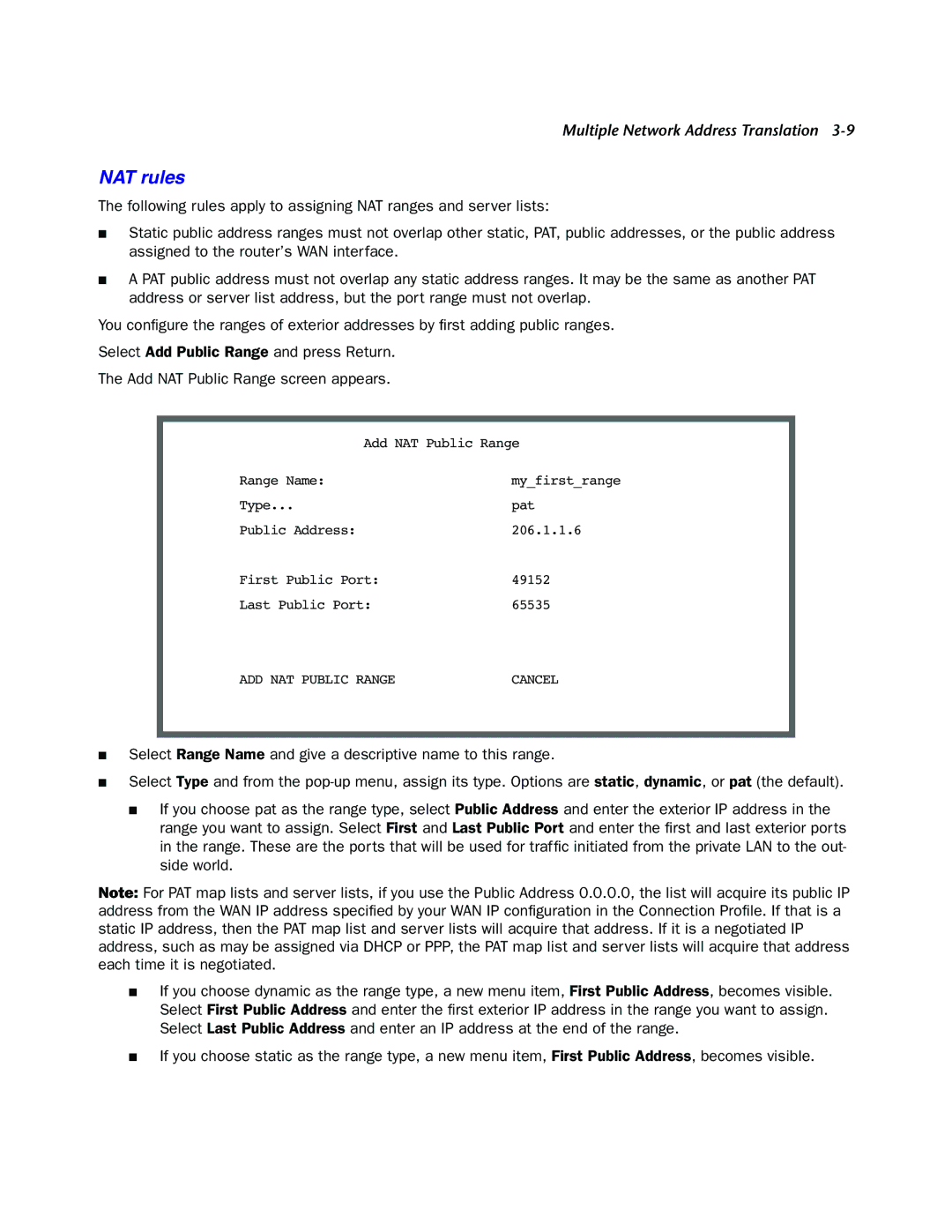
Multiple Network Address Translation
NAT rules
The following rules apply to assigning NAT ranges and server lists:
■Static public address ranges must not overlap other static, PAT, public addresses, or the public address assigned to the router’s WAN interface.
■A PAT public address must not overlap any static address ranges. It may be the same as another PAT address or server list address, but the port range must not overlap.
You configure the ranges of exterior addresses by first adding public ranges.
Select Add Public Range and press Return.
The Add NAT Public Range screen appears.
Add NAT Public Range
Range Name: | my_first_range |
Type... | pat |
Public Address: | 206.1.1.6 |
First Public Port: | 49152 |
Last Public Port: | 65535 |
ADD NAT PUBLIC RANGE | CANCEL |
■Select Range Name and give a descriptive name to this range.
■Select Type and from the
■If you choose pat as the range type, select Public Address and enter the exterior IP address in the range you want to assign. Select First and Last Public Port and enter the first and last exterior ports in the range. These are the ports that will be used for traffic initiated from the private LAN to the out- side world.
Note: For PAT map lists and server lists, if you use the Public Address 0.0.0.0, the list will acquire its public IP address from the WAN IP address specified by your WAN IP configuration in the Connection Profile. If that is a static IP address, then the PAT map list and server lists will acquire that address. If it is a negotiated IP address, such as may be assigned via DHCP or PPP, the PAT map list and server lists will acquire that address each time it is negotiated.
■If you choose dynamic as the range type, a new menu item, First Public Address, becomes visible. Select First Public Address and enter the first exterior IP address in the range you want to assign. Select Last Public Address and enter an IP address at the end of the range.
■If you choose static as the range type, a new menu item, First Public Address, becomes visible.
